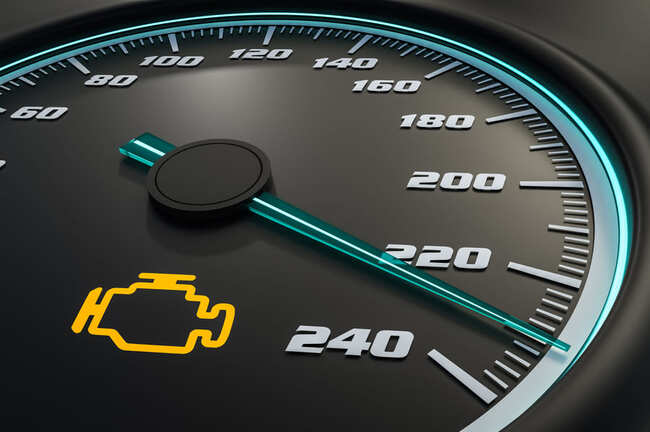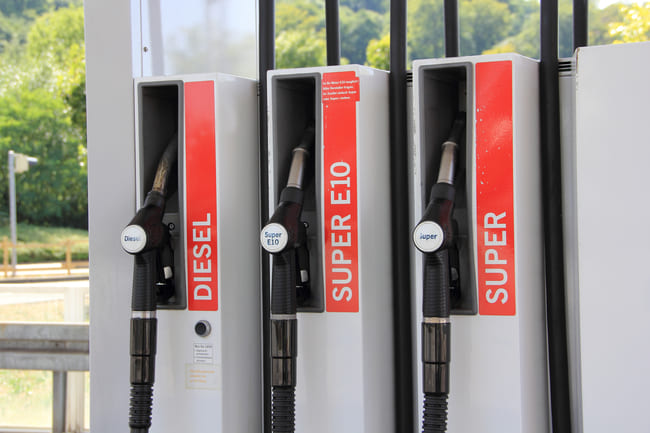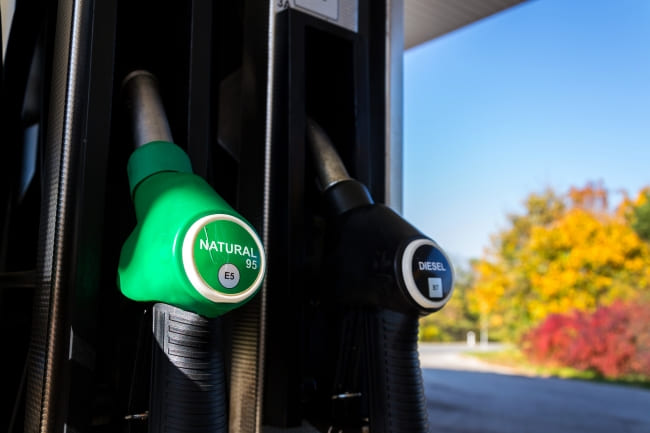
Everyone knows the situation: you urgently want to drive somewhere, get into your car, look at the fuel gauge and realize angrily that you don't have enough fuel to reach your destination. The task now is to find a gas station as quickly as possible and drive there. But as soon as they got there, in all the haste it happened to one or the other: the wrong fuel was filled up, i.e. petrol was poured into a vehicle with a diesel engine or vice versa: diesel was put into a vehicle with a petrol engine. What do you do now? Is this the absolute catastrophe or is there a solution? First of all, you should do one thing: keep calm. The best advice you can get: don't start the engine now. Because if you fill up wrongly, you just have to react correctly. Now it comes down to when, which fuel you accidentally dumped into which vehicle. If you have a petrol engine and filled up with diesel here, then you've been lucky again, because most of the time the wrong fuel simply has to be pumped out here. You should definitely leave the car where it is, i.e. do not start it and drive it. There is often a workshop in the immediate vicinity of the gas station, so that specialists can take care of pumping out the wrong fuel. All you would have to do is have someone pick you up and then pick up the car again when the professionals have done their job. But what if you put petrol in a diesel vehicle? This is where it gets a little more complicated. If you were to start the engine here or have already done so, in the worst case you have to reckon with costs of several thousand euros. This is because important units and assemblies were damaged here. Total damage to the pump is often a result of incorrect refuelling. The same applies here: if the engine has not yet been started and you notice your mishap at the gas station, then you can be lucky and pumping out the wrong fuel will not end in disaster.
Contents
Can you also see signs while driving that indicate that you are using the wrong fuel?

As a matter of fact. Because if you actually filled up with the wrong fuel and didn't notice it when filling up or paying at the gas station, get into your car, start it and drive off, sooner or later you will notice the following signs: you will notice that the engine suddenly jerks and makes strange noises while driving. In addition, the hazard warning light often comes on or flashes continuously. Now you should react immediately at the latest, drive to the side of the road, switch off the engine and think hard about what you filled up at the gas station and whether it was actually the right fuel that your car needs. If you realize you've made a big mistake, leave the car, never turn the engine back on, and call a repair shop. The car should now be towed and taken to a workshop. Here experts can pump it out and – if you're lucky – no following damages remain.
What happens if I confused Super E10 with E5?

If you have mistakenly filled up with E10 instead of E5 and notice this quickly, you should stop the process immediately. If only a small amount got into the tank, there will be no damage here. Now the rest of the tank should be filled up with Super Plus. This fuel is one that is particularly low in ethanol, so the mixture won't do much harm to your car. But in some cases pumping out would make more sense here too. It is therefore better to contact specialists who can take a close look at the incident and assess it correctly.
What_costs should I expect if I filled up with the wrong fuel and the tank needs to be pumped out?
Unfortunately, you have to pay high costs here. However, these are not nearly as high as if the engine of your vehicle is damaged, important units and assemblies break down or the engine is even totaled. The towing service will cost around 100 to 150 euros and pumping it out will also cost 150 to 200 euros, since the fuel tank will also be rinsed out after pumping out, but all in all you were lucky again. Because if defective units have to be replaced, you can expect several thousand euros. The same applies, of course, to a total loss of the engine. What about reimbursement of costs? Unfortunately, we have to disappoint you here, because neither the partial nor the fully comprehensive insurance will pay for the fact that you were not careful when refueling. That's why you should – even when you are stressed – always check the fuel pump when filling up at the gas station. So you will be able to rule out that such a mishap will cost you many hundreds or even thousands of euros.
The conclusion and a tip from CarTipsandmore

In summary, it can be said that this mishap is not uncommon: if you are stressed at the gas station and want to fill up under time pressure, you will quickly park at the wrong gas pump and fill up with diesel for a petrol vehicle or petrol for a diesel vehicle. If this error is noticed immediately and the engine has not yet been started, a lot can still be saved in most cases. It is now important to keep calm and contact a specialist directly. If a workshop is right next to the gas station, then all the better. Otherwise, a towing service will take your car to the nearest workshop, where the vehicle can then be pumped out and the tank cleaned. Although many hundreds of euros are also incurred here, this is nothing compared to the high costs that you have to pay if damage to the engine and its components occurs. CarTipsandmore therefore recommends that you always refuel stress-free, so that errors can be ruled out. A second look at the fuel pump can also provide security. Especially if you have recently switched from a petrol vehicle to a diesel or vice versa, you should always make sure when filling up that you are not making a big mistake here.
